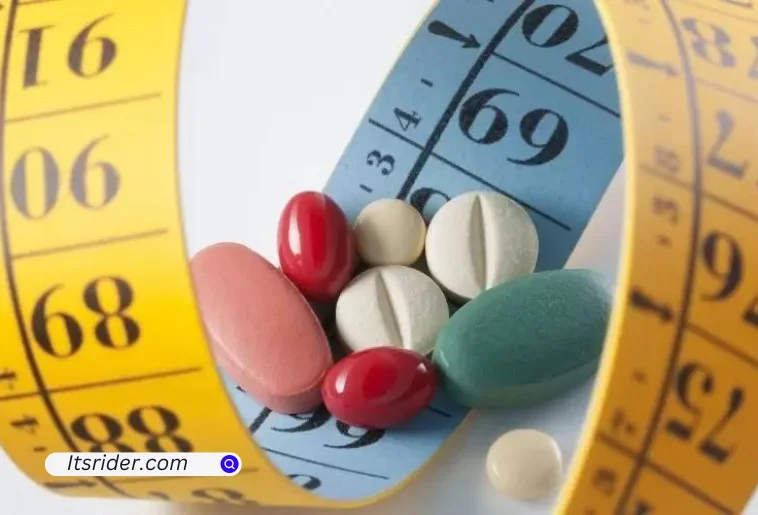Choosing the right weight loss drug can be a complex decision influenced by various factors such as individual health conditions, potential side effects, and the effectiveness of the medication. With the increasing prevalence of obesity and weight-related health issues, understanding the options available is crucial. This article aims to guide you through the different weight loss drugs, their mechanisms, benefits, and potential risks, helping you make an informed choice.
Introduction to Weight Loss Drugs
Weight loss drugs, also known as anti-obesity medications, are designed to help individuals lose weight by either suppressing appetite, reducing nutrient absorption, or increasing calorie burning. These drugs are typically prescribed when lifestyle changes such as diet and exercise have not been successful on their own.
Common Weight Loss Drugs
Orlistat (Xenical, Alli)
Orlistat works by inhibiting the absorption of dietary fats in the intestines. It is available both over-the-counter (Alli) and by prescription (Xenical).
Pros: Effective in reducing fat absorption, leading to moderate weight loss. Can be beneficial for those who have difficulty controlling fat intake.
Cons: Side effects include gastrointestinal issues such as oily stools, flatulence, and frequent bowel movements. It requires a low-fat diet to minimize side effects.
Phentermine-Topiramate (Qsymia)
Phentermine-topiramate combines an appetite suppressant (phentermine) with a drug used to treat epilepsy and migraines (topiramate).
Pros: Effective in reducing appetite and promoting significant weight loss. Can improve blood pressure and cholesterol levels.
Cons: Side effects include increased heart rate, insomnia, dry mouth, and dizziness. Not suitable for individuals with heart disease or glaucoma.
Naltrexone-Bupropion (Contrave)
Naltrexone-bupropion combines a drug used for opioid addiction and alcohol dependence (naltrexone) with an antidepressant (bupropion).
Pros: Helps reduce appetite and control cravings. Can be beneficial for those with food addiction or emotional eating.
Cons: Side effects include nausea, constipation, headache, and increased blood pressure. Not recommended for individuals with seizure disorders or uncontrolled hypertension.
Liraglutide (Saxenda)
Liraglutide is a GLP-1 receptor agonist, originally used to treat type 2 diabetes, that also promotes weight loss.
Pros: Effective in reducing appetite and increasing feelings of fullness. Can improve blood sugar control.
Cons: Side effects include nausea, diarrhea, constipation, and low blood sugar. Requires daily injections, which may be inconvenient for some individuals.
Semaglutide (Wegovy)
Semaglutide is another GLP-1 receptor agonist that has shown significant effectiveness in promoting weight loss.
Pros: Highly effective in reducing body weight and improving metabolic health. Once-weekly injection improves convenience.
Cons: Side effects include nausea, vomiting, diarrhea, and constipation. Potentially expensive, depending on insurance coverage.
How to Choose the Right Weight Loss Drug
Assessing Your Health Condition
Your overall health and any existing medical conditions play a crucial role in determining the right weight loss drug for you. For instance, individuals with diabetes may benefit from GLP-1 receptor agonists like liraglutide or semaglutide, while those with a history of heart disease may need to avoid certain appetite suppressants.
Evaluating Side Effects
Consider the potential side effects of each drug and how they might affect your daily life. Some medications may cause gastrointestinal issues, while others might impact your cardiovascular health. Discussing these side effects with your healthcare provider can help you weigh the pros and cons.
Considering Lifestyle and Preferences
Your lifestyle and personal preferences are important factors in choosing a weight loss drug. For example, if you prefer not to take daily injections, a once-weekly injection or an oral medication might be more suitable. Additionally, some medications require specific dietary adjustments, which should be taken into account.
Monitoring and Adjusting Treatment
Regular Check-Ups
Regular follow-up appointments with your healthcare provider are essential to monitor your progress and any side effects. This allows for timely adjustments to your treatment plan, ensuring the best possible outcomes.
Combining with Lifestyle Changes
While weight loss drugs can be effective, they are most beneficial when combined with lifestyle changes such as a healthy diet and regular exercise. This holistic approach not only enhances weight loss but also improves overall health.
Addressing Psychological Factors
Weight loss is not just a physical journey but also a psychological one. Addressing underlying emotional and psychological factors, such as stress or emotional eating, can enhance the effectiveness of weight loss drugs and support long-term success.
Conclusion
Choosing the right weight loss drug involves a careful assessment of your health condition, potential side effects, lifestyle preferences, and psychological factors. By working closely with your healthcare provider and considering these factors, you can make an informed decision that best suits your needs and supports your weight loss journey. Remember, while weight loss drugs can aid in shedding pounds, combining them with healthy lifestyle changes is key to achieving and maintaining your weight loss goals.
Read More: The Impact of Addiction on Personal Relationships
